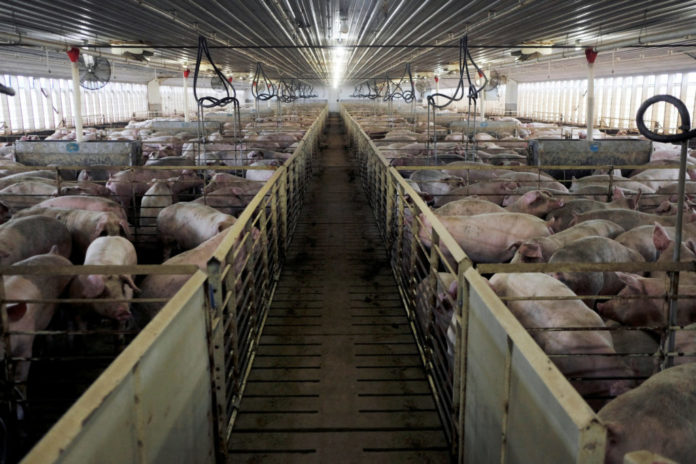Factory farming is a system of intensive animal farming that prioritizes profit over animal welfare and health, it has become a global issue with far-reaching negative effects on both animal welfare and the workers. The issue continues to persist unnoticed by many. TRIGGER WARNING, the following text contains descriptions of animal cruelty and distressing situations related to factory farming practices.
Reader discretion is advised. The animals live in extremely overcrowded and filthy conditions. Many are raised in cages too small for them to turn around. Sadly, many animals die without getting to see the light of day. The animals are raised in unnatural conditions, manipulated with hormones and antibiotics to accelerate growth and stave off diseases. Variety of diseases and infections that can spread to humans through the food chain.
Pigs raised in traditional factory farms face a distressing life. Just three weeks after birth, they’re taken away from their mothers and have their tails sheared off to stop infection. After six months, male pigs are weighed and then sent to slaughter once they reach the right weight. Female pigs are weaned and separated from their mothers until they’re old enough to give birth. Mother pigs are kept in crates, repeatedly impregnated, and confined above their own waste, often losing the ability to walk. This cycle repeats about six to seven times until their fertility declines, at which point they are sent for slaughter.
Factory farming often preys on the vulnerabilities of immigrant communities particularly those who are undocumented Immigrant workers Limited job options and economic pressures can drive them towards these jobs, where they often endure low wages, unsafe working conditions and even potential health risks. Fear of deportation and lack of awareness about their legal rights further compound the issue, making immigrants reluctant to speak out against abuses since the are largely unable to fight back against injustice.
Factory farm employees’ health conditions are generally overlooked. Slaughterhouse workers suffer from PTSD due to the frequency with which the are exposed to the killing of animals every day. Studies have shown factory farm workers have Higher rates of alcoholism, drug abuse, domestic violence, and crime. Most factory farm workers of the incidents involved losing fingers or parts of fingers, but some incidents resulted in lost hands or arms. There were 550 severe injuries reported during a specific time period, affecting 22 out of the 50 states in the country. However, it’s likely that the actual number of injuries is even higher because there might have been more incidents in the states that didn’t get reported.
Animal agriculture Industries see some of the worst human rights violations. Workers are often treated horribly, seen as less than people who are undeserving of compassion and equality. Politicians fail to recognize the integral roles immigrants play in the agricultural industry. without immigrants, roughly 15% of dairy farms would have to close down, causing over 200,000 jobs to be lost. In these lower-income communities, people are mostly too busy working to support their families to fight back against large corporations and bills that threaten their livelihoods.
Furthermore, these people also don’t have the resources or the connections to combat injustice, leaving them to just suffer under the oppressive thumb of large corporations and capitalism. Factory farming exacts a heavy toll on both animals and workers, reflecting a distressing reality of suffering and exploitation. Animals endure inhumane conditions and interventions that prioritize profit, while workers, often from vulnerable immigrant communities, face exploitation and hazardous environments. This convergence of issues understand the need for systemic change. If you have any further questions or comments, please don’t hesitate to reach out at s_sara.tesema@ousd.org
